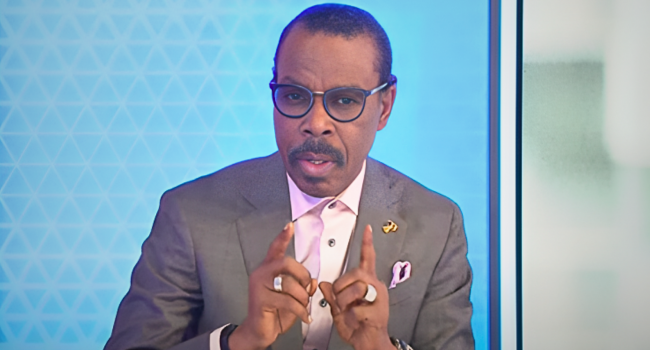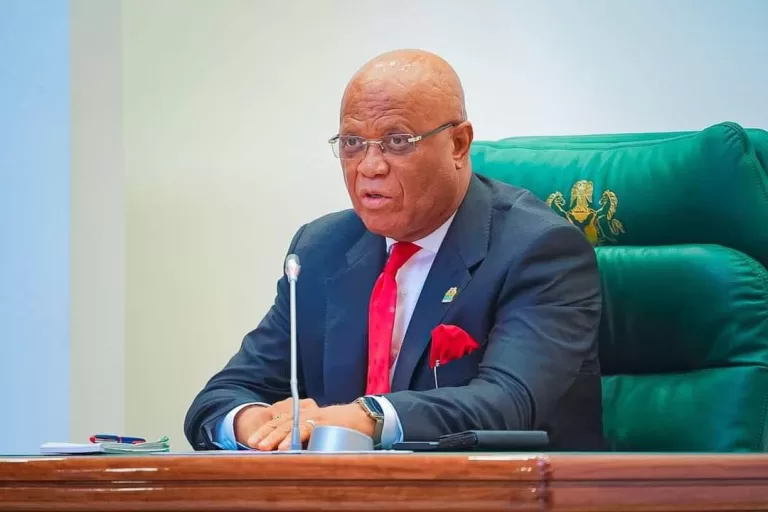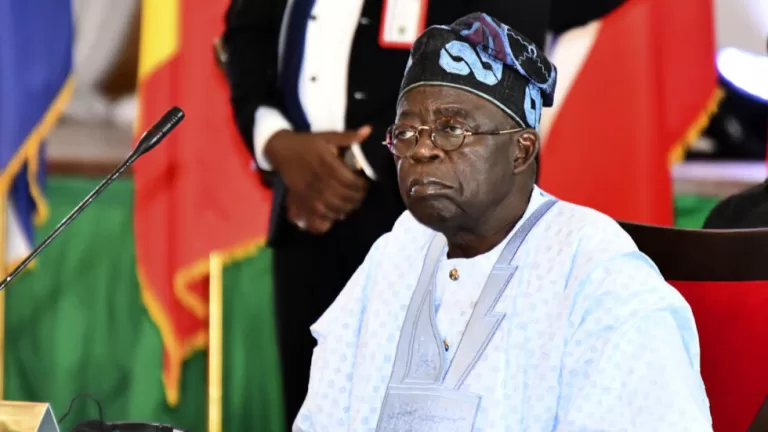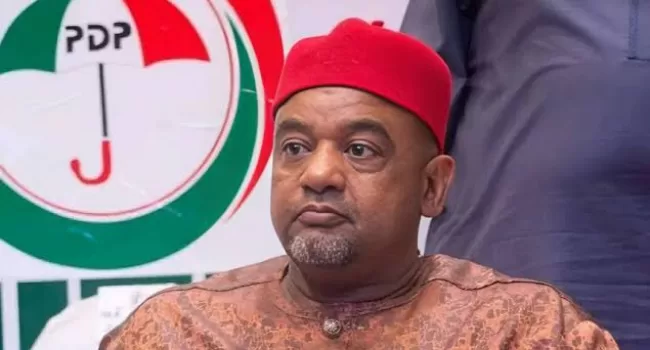
Bismarck Rewane, the Chief Executive Officer of the Financial Derivatives Company, has called for a pragmatic and balanced approach to managing Nigeria’s fragile economy, emphasizing the need for careful economic strategy rather than drastic cuts. Speaking on Channels Television’s Business Morning, Rewane warned against simply slashing government spending without optimizing it, particularly as the country faces economic uncertainty.
His remarks come in the wake of a report by the International Monetary Fund (IMF) that outlines a challenging economic outlook for Nigeria. Rewane addressed concerns about government expenditure, explaining that reducing spending without addressing inefficiencies could harm the economy further. “Cutting expenditure is not the same as optimising it,” he remarked, offering an analogy to highlight the importance of careful fiscal management. “It’s like asking a man with an ulcer to go on a fasting mission.”
Rewane’s analysis underscores the delicate balance Nigeria must strike in managing its fiscal challenges. While advocating for optimization rather than reckless cuts, he also stressed the importance of continued investment, especially in security and infrastructure, as well as controlling inflation.
The Necessity of Reforms and Economic Stability
Rewane acknowledged the necessity of President Bola Tinubu’s reforms, such as the removal of fuel subsidies and currency realignment. However, he warned that these measures, though essential, are insufficient in achieving long-term economic stability. “We must stop looking backwards,” he said, noting that what worked in 2023 may not suffice in 2025.
Addressing Nigeria’s security issues, particularly in oil-producing regions, Rewane pointed out that these persistent challenges continue to hamper oil production—an essential revenue source for the country. Until these security concerns are resolved, Nigeria’s economic recovery will remain sluggish.
Inflation and Fiscal Policy
On the issue of inflation, Rewane expressed cautious optimism, predicting a modest rise to 25–27%, which is lower than the IMF’s forecast of 30% in 2025 and 37% in 2026. He emphasized that the Central Bank of Nigeria (CBN) may have to maintain or increase interest rates to control inflation, given the high liquidity in the system.
Criticizing the Debt Management Office (DMO) for reducing bond issuance from ₦1.8 trillion in the first quarter of the year to ₦1.2 trillion in the second quarter, Rewane argued that increasing bond issuance is crucial for mopping up liquidity and managing inflation. “This is one of the painful choices we make to control inflation,” he explained.
Challenges in the Oil Sector and Global Economic Outlook
Rewane also raised concerns about Nigeria’s undervalued crude oil exports, noting that the country sells oil at a much lower price than its neighbors, which hampers revenue generation. “We sell for 70 cents, while our neighbors get $1.20. How long can this go on?” he asked.
Despite the challenges, Rewane praised the Dangote Refinery for helping to reduce local fuel prices. However, he warned that plans by the Organisation of Petroleum Exporting Countries (OPEC) to increase oil output could further depress global oil prices, affecting Nigeria’s oil revenue.
On the global front, Rewane commented on the potential easing of trade tensions between the US and China, particularly with the reduction of tariffs by the US. While this move could ease some economic pressures, Rewane cautioned that uncertainty would still linger in global markets. He predicted a mild, rather than deep, recession, as forecasted by the IMF.
The Path Forward
In closing, Rewane stressed that Nigeria must address its fiscal gap through strategic borrowing, reducing leakages, and fiscal consolidation. “These are serious times, and we must respond with serious adjustments,” he stated, calling for comprehensive economic reform to navigate the challenges ahead.
Rewane’s insights highlight the complex economic decisions Nigeria faces, urging a cautious, long-term approach to ensure stability and growth in the face of an uncertain global and domestic economic environment.





